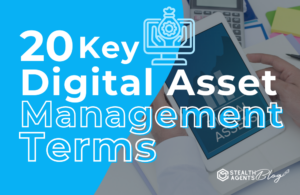Essential business analytics terms play a crucial role in the world of data-driven decision-making.
These terms encompass a range of concepts that help organizations make sense of vast amounts of data, derive meaningful insights, and ultimately improve their business strategies.
What are the 6 phases of business analytics?
Business analytics involves the use of data analysis resources for making smart business choices. The process typically consists of six phases:
Define the Problem
- Understand the goals of the company and figure out specific challenges or opportunities that can be tackled using data analysis.
Data Collection
- Collect relevant information from different sources, like customer databases, sales records, and market research, to use in the analysis.
Data Cleaning and Preparation
- Clean up and organize the raw data before analysis by fixing errors, handling missing values, and getting it ready for use.
Data Analysis
- Use various tools and techniques to study the prepared data, finding patterns and insights that help answer specific business questions.
Interpretation of Results
- Understand the analysis results in the context of the business problem, turning technical findings into practical insights that can be used.
Implementation and Monitoring
- Put the insights into action by making changes to operations, creating new products, or improving existing processes. Keep an eye on the impact of these changes and continuously evaluate performance for ongoing improvement.
Essential business analytics terms
Here’s a brief description and importance of these terms:
1. Business Analytics

Using data and statistics to understand and make smart decisions in business.
- Importance: Helps businesses make informed choices by analyzing data, leading to better strategies and improved outcomes.
2. Data Visualization

Representing data visually, like using charts or graphs, to make it easier to understand.
- Importance: Facilitates better understanding and analysis of data, making it accessible for everyone in the business.
3. Key Performance Indicators (KPIs)

Quantifiable metrics measuring how well a business or specific activities are doing.
- Importance: Guides businesses by providing measurable goals and tracking progress towards achieving them.
4. Predictive Analytics

Using past data and models to predict future outcomes or trends.
- Importance: Helps businesses plan ahead, make proactive decisions, and be prepared for future events.
5. Descriptive Analytics

Studying past data to understand what happened before.
- Importance: Offers insights into patterns and trends, helping businesses learn from the past.
6. Data Mining

Finding patterns or relationships in large datasets using various techniques.
- Importance: Helps discover valuable information within vast amounts of data, aiding decision-making.
7. Data Warehouse

A central storage for organized data from various sources.
- Importance: Enables efficient analysis and reporting by bringing together data in one place.
8. Data Cleansing

Keeping an organization’s digital assets under control.
- Importance: Ensures reliable data for accurate decision-making and analysis.
9. Data Governance

Managing and controlling data assets within an organization.
- Importance: Establishes rules and procedures to maintain data integrity, privacy, and security.
10. Data-driven Decision Making

Deciding what to do based on data instead of gut feelings.
- Importance: Improves decision accuracy and helps in achieving business goals.
11. Data Scientist

A professional using statistics and programming to solve business problems with data.
- Importance: Extracts valuable insights from data, contributing to informed decision-making.
12. Machine Learning

Data-driven algorithm training for prediction without programming
- Importance: Enables computers to learn and adapt, improving decision-making processes.
13. Data Visualization Tools

Software creating visual representations of data.
- Importance: Facilitates exploration and communication of data insights.
14. Big Data

Large and complex datasets that traditional methods can’t easily handle.
- Importance: Involves vast amounts of data, requiring advanced techniques for analysis.
15. Business Intelligence (BI)

Collecting, analyzing, and presenting data to support business decisions.
- Importance: Provides tools for interactive dashboards, reports, and analytics to aid decision-making.
16. Data Mining Techniques

Various methods to discover patterns in data, like clustering or classification.
- Importance: Helps uncover valuable information within datasets, enhancing decision-making.
17. Data-driven Marketing

Marketing based on data analysis and insights.
- Importance: Customizes marketing campaigns, optimizing efforts for better results.
18. Data Privacy

Protecting sensitive information collected by businesses.
- Importance: Complies with regulations, ensuring secure and ethical handling of personal data.
19. Data Integration

Uniting data from diverse sources for analysis
- Importance: Eliminates data silos, providing a comprehensive understanding for decision-making.
20. Data Exploration

Initial analysis phase to understand the structure and content of data.
- Importance: Sets the foundation for further analysis, ensuring a clear understanding of the data
What do you understand by the terminology of business analytics?
business analytics is like figuring out a puzzle using information. It’s about looking at data, finding patterns, and using what we learn to make smart business choices. Instead of guessing, we use facts and numbers to decide the best decision-making strategy.
A big part of business analytics is making decisions based on data, not just on what we think might work. It’s also about finding ways to make a business work better. By studying data, we can see what’s not going well and fix it.
Another cool thing about business analytics is how it helps us determine the intended audience. We can see what they do and buy, and use that to make products or services that they’ll really love.
It’s not just about fixing problems, though. Business analytics also helps us see what might go wrong or what new things we can try to make our business even better. By looking at data, we can be ready for challenges and grab exciting opportunities in the market.
What are the 5 categories of analytics?
These categories are often grouped together as a way to classify different types of data analysis techniques and methods that can help businesses gain insights and make informed decisions.
1. Descriptive Analytics
Tells us what happened in the past using reports and visual aids.
2. Diagnostic Analytics
Helps us understand why things happened by looking at patterns and connections in historical data.
3. Predictive Analytics
Makes educated guesses about what might happen in the future based on patterns we see in past data.
4. Prescriptive Analytics
Not only predicts future outcomes but also suggests actions to get the best results.
5. Real-time Analytics
Analyzes data as it comes in, providing immediate insights for quick decision-making in fast-paced situations.
Takeaways
Data-driven business analytics helps organizations make smart decisions. By analyzing past performance, identifying trends, and predicting future outcomes, businesses can enhance their decision-making processes.
The focus on objective data rather than intuition enables more accurate and strategic choices. Furthermore, the ability to pinpoint areas for improvement and optimization, understand consumer behavior and anticipate risks and opportunities makes business analytics an invaluable asset in the dynamic and competitive business landscape.
As businesses continue to leverage data analysis, they gain a competitive edge, adapt to changing market conditions, and drive continuous improvement in their operations.












